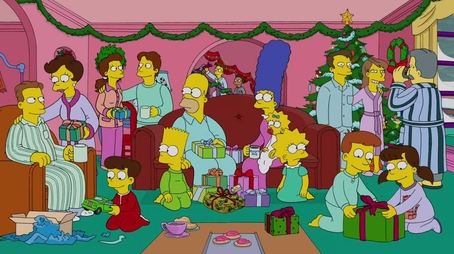
Sorry, we have not watched this yet.

Springfield is inundated with holiday revelers after the nuclear power plant springs a radiation leak, causing snow to fall all over town. When the tourists drive up Christmas shopping prices, Marge opens up the Simpsons' house to boarders.
Sorry, we have not watched this yet.